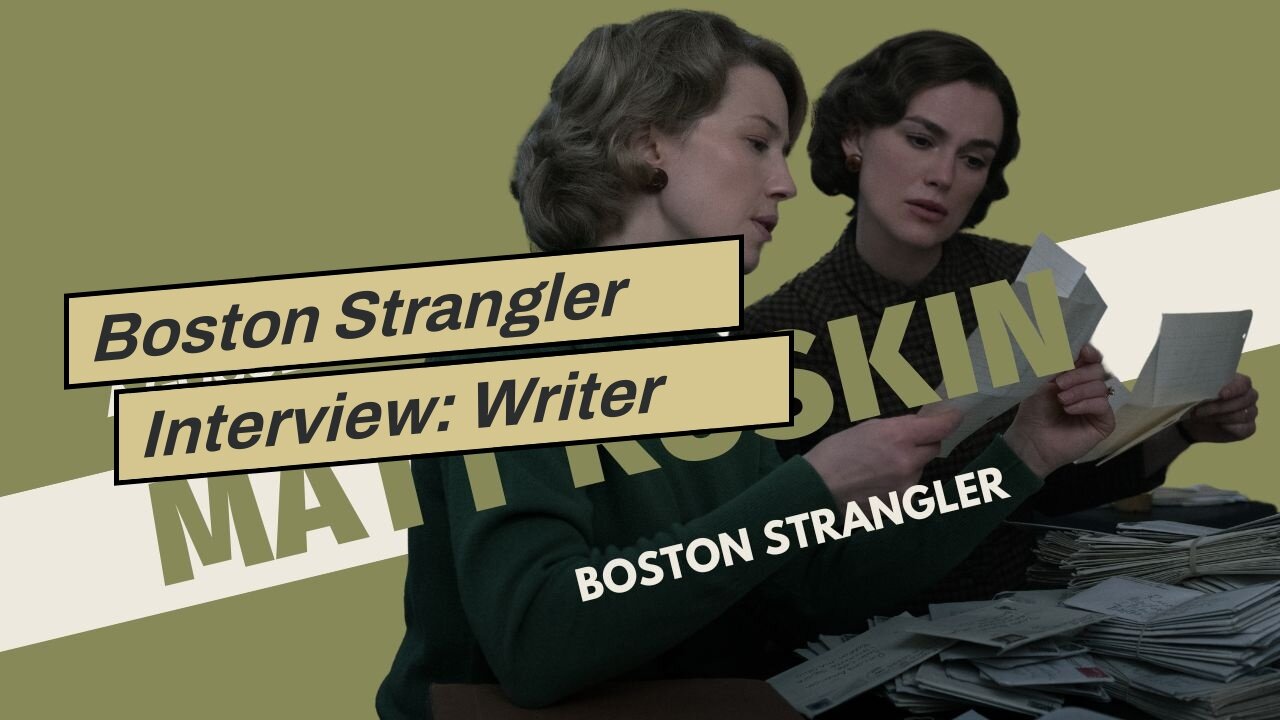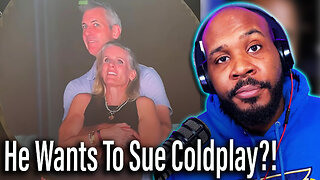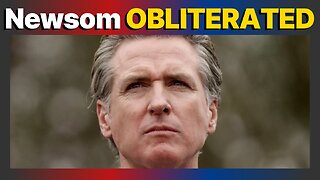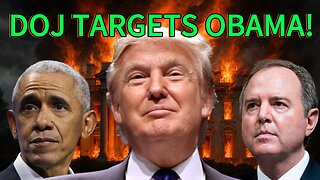Premium Only Content

Boston Strangler Interview: Writer and Director Matt Ruskin on True Stories
Boston Strangler Interview: Writer and Director Matt Ruskin on True Stories
ComingSoon Senior Editor Spencer Legacy spoke with Boston Strangler writer and director Matt Ruskin about the Hulu drama film. Ruskin spoke about adapting true stories and how much research went into Boston Strangler. The film is now streaming on Hulu. “Reporter Loretta McLaughlin becomes the first person to connect a series of murders and break the story of the Boston Strangler,” reads the film’s synopsis. “She and Jean Cole challenge the sexism of the early 1960s to report on the city’s most notorious serial killer.” Spencer Legacy: We’ve seen some glamorization of serial killers in the past, but your movie...
ComingSoon Senior Editor Spencer Legacy spoke with Boston Strangler writer and director Matt Ruskin about the Hulu drama film. Ruskin spoke about adapting true stories and how much research went into Boston Strangler. The film is now streaming on Hulu. “Reporter Loretta McLaughlin becomes the first person to connect a series of murders and break the story of the Boston Strangler,” reads the film’s synopsis. “She and Jean Cole challenge the sexism of the early 1960s to report on the city’s most notorious serial killer.” Spencer Legacy: We’ve seen some glamorization of serial killers in the past, but your movie really puts the focus on Loretta and Jean’s pursuit of justice rather than the killer. Can you speak to focusing on that human triumph in the story? Matt Ruskin: Yeah, I think the thing that really grabbed me was the Loretta and Jean’s story about these two women who worked tirelessly to keep the city informed and who were really committed to trying to get to the truth. So that was the focus for me and what initially really inspired the making of the film. Then, just because it is a true story and these are real victims, we wanted to be respectful of them and didn’t want to create a gratuitous depiction of violence in any way. We also wanted to do it in a way that was equally horrifying for audiences. What I learned along the way was sometimes, the less you see, the more horrifying it actually can be. We also see the sexism that McLaughlin faced in that era. What did you find most interesting about the difficulty she faced when you went about portraying it? I mean, this was a woman who studied journalism at Boston University and had been at it for a long time and was still frustrated with the type of stories that she was getting. I think, at that period, newsrooms were even more male-dominated environments and both she and Jean came up against a ton of sexism while they were trying to do the work that was so important to them. But it’s a real testament to who they were, that they were able to create the careers for themselves that they wanted and also do such important reporting — particularly at a time when the police department was coming up short and people really relied on them to stay informed. Keira Knightley is so excellent as Loretta. What really impressed you the most about what she was able to instill in that character? Yeah, Keira’s amazing. She has this incredible outward strength, but also this really remarkable ability to be vulnerable and convey this interior life that is just so compelling to watch. So she’s like the perfect person to bring Loretta’s character to life. I also think that she could identify with Loretta on a personal level, being somebody with a demanding career and a family and the challenges that that go along in trying to balance that. She was dream casting for the role of Loretta, and pairing her with Carrie Coon was amazing, to just see their chemistry together. I think it really came across on screen. In the movie, Loretta kind of has two lives where she has to split between her husband and family and her investigation. How did you go about portraying that and was it a difficult thing to convey? I talked to Loretta’s kids. I talked to people who knew Loretta and just tried to get a sense of who she was and how she approached her life and her work. And like I said, I think it’s something that Keira could really identify with personally. In many ways, the film is about identity — not just the identity of this killer, but the identity of these women who were doing really important work at a time when there were very few women in their position. You touched on it a bit, but how much research were you able to do into Loretta and Jean and their investigations? I did a ton of research. I spent...
-
 35:14
35:14
The Pascal Show
14 hours ago $3.66 earnedHE'S GONNA SUE COLDPLAY?! Astronomer HR Resigns & Ex-CEO Set To Sue Coldplay Over Kiss Cam Drama
18.1K7 -
 LIVE
LIVE
Lofi Girl
2 years agoSynthwave Radio 🌌 - beats to chill/game to
435 watching -
 19:18
19:18
DeVory Darkins
9 hours ago $26.54 earnedDemocrat non-profit SCAM EXPOSED as Trump OBLITERATES Newsom
49.3K97 -
 23:58
23:58
Stephen Gardner
11 hours ago🔥Obama THROWS Adam Schiff under the bus to obstruct Trump!
40.3K148 -
 38:44
38:44
The Why Files
5 days agoProject Ancient Arrow | The NSA's Secret War Against Our Future
77.5K83 -
 2:36:06
2:36:06
Barry Cunningham
13 hours agoPRESIDENT TRUMP IS TRULY USHERING IN THE GOLDEN AGE OF AMERICA! CAN YOU FEEL IT?
127K53 -
 3:47:25
3:47:25
SynthTrax & DJ Cheezus Livestreams
3 days agoFriday Night Synthwave 80s 90s Electronica and more DJ MIX Livestream 2K Celebration SPECIAL EDITION 530pm PST / 830pm EST
63.3K12 -
 2:21:54
2:21:54
VapinGamers
10 hours ago $4.34 earnedDestiny 2 - Edge of Fate Legendary Run Part 3 - !rumbot !music
35.8K -
 2:04:25
2:04:25
TimcastIRL
12 hours agoTrump DOJ Gives Ghislaine Maxwell Limited IMMUNITY As She Rats On 100+ People | Timcast IRL
249K190 -
 1:09:09
1:09:09
Omar Elattar
14 hours agoThe Brain Experts: Your Brain Can Rewire Itself At Any Age & Here's How!
30.6K6